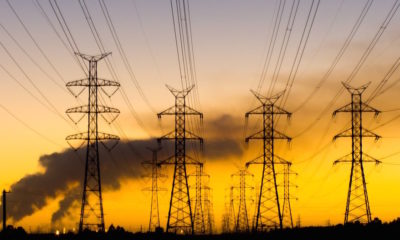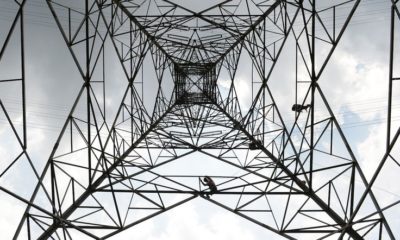Nigerian Electricity Regulatory Commission (NERC) has disclosed that ten international and bilateral power consumers that get supply from Nigeria have failed to pay for the electricity they have consumed for the last six months.
Figures released by NERC pointed out that these special power consumers are owing Nigeria about N4.71bn.
According to findings, these 10 international, bilateral and special power consumers of Nigeria failed to remit the sum within a period of six months notwithstanding the huge profits they have been making in their respective organisations.
Making these disclosures n its first and second quarter reports of 2022, NERC also identified the debtors to include Odukpani-CEET, Paras-SBEE, Ajaokuta Steel, and Mainstream/Inner Galaxy.
Other debtors are Mainstream/KAM Industries, Mainstream/KAM Integrated, KAM Steel Shagamu, NDPHC/Sunflag, North South/OAU, and Mainstream/Adefolorunsho Ventures.
The commission further stated that the indebtedness by the power firms were to the Nigerian Bulk Electricity Trading Company Plc and the power Market Operator.
According to the electricity regulator, in the first quarter, moribund Ajaokuta Steel Company Limited failed to pay N0.45bn, while Odukpani-CEET did not remit $3.42m.
NERC, while commenting on remittance by special and international customers stated that its summary indicated that Ajaokuta Steel Co. Limited and its host community didn’t pay for the electricity that was supplied to them.
The commission said, “no payment was made by the special customer – Ajaokuta Steel Co. Ltd and the host community, in respect of the N0.38bn and N0.07bn market invoices issued by NBET and MO respectively in 2022/Q1.”
“In the same period, bilateral customers, Paras-SBEE, Transcorp-SBEE, and Mainstream NIGERLEC received invoices of $2.72m, $2.74m and $4.61m from the MO and each remitted $2.72m (100 per cent), $2.74m (100 per cent), and $4.52m (98 per cent) respectively.
“Odukpani-CEET received an invoice of $3.42m from the MO during the period but no payment was made by this customer. The non-settlement of market obligations by this category of market participants should push MO and NBET to activate relevant safeguards for remittance shortfalls.”
In the second quarter, the commission said Paras-SBEE did not pay $2.39m; Odukpani-CEET, $2.03m; Ajaokuta Steel, N0.34bn; while seven other bilateral customers did not remit N0.37bn.
A summation of the total debt in dollars during the six-month period was $7.84m (N3.55bn at the official exchange rate of N453.1/$), while the total debt in naira was N1.16bn, hence the cumulative indebtedness of all the debtors stood at N4.71bn
Similarly, in the section on remittance by international, special and bilateral customers in the second quarter, the NERC pointed out that, “international customers, Transcorp-SBEE and Mainstream-NIGERLEC received invoices of $2.42m and $5.56m respectively from MO and made remittances of $2.42m (100 per cent) and $5.54m (99.64 per cent) respectively in 2022/Q2.”
“These customers had 100 and 98 per cent remittance performance respectively to the MO in 2022/Q1. However, no remittance was made to the MO by Paras-SBEE and Odukpani-CEET for invoices of $2.39m and $2.03m respectively,” it added.
NERC acknowledged that Paras-SBEE had 100 per cent remittance to the MO in 2022/Q1, but stressed that no remittance was made by Odukpani-CEET in 2022/Q1.
The commission added that, “bilateral customers including Mainstream/Inner Galaxy, Mainstream/KAM Industries, Mainstream/KAM Integrated, KAM Steel Shagamu, NDPHC/Sunflag, North South/Star Pipe, North South/ OAU, Mainstream/Adefolorunsho Ventures received invoices of N505.68m, N24.19m, N117.23m, N153.03m, N19.54m, N18.36m, N22.39m and N35.2m respectively from the MO in 2022/Q2.”
Meanwhile, Investors King gathered that NERC has been making efforts to get the debts settled.
It could be recalled that the lack of payment of electricity bills by consumers has become a source of worry for regulators.
Most Nigerians who are yet to be metered had always invented illegal means of evading remittance of their bills. To curb this, NERC has been increasing availability of meters to consumers and ensure that era of estimated billing is erased.

 Billionaire Watch3 weeks ago
Billionaire Watch3 weeks ago
 Startups4 weeks ago
Startups4 weeks ago
 News4 weeks ago
News4 weeks ago
 News4 weeks ago
News4 weeks ago
 Bitcoin4 weeks ago
Bitcoin4 weeks ago
 Naira4 weeks ago
Naira4 weeks ago
 Forex3 weeks ago
Forex3 weeks ago
 Treasury Bills4 weeks ago
Treasury Bills4 weeks ago



























